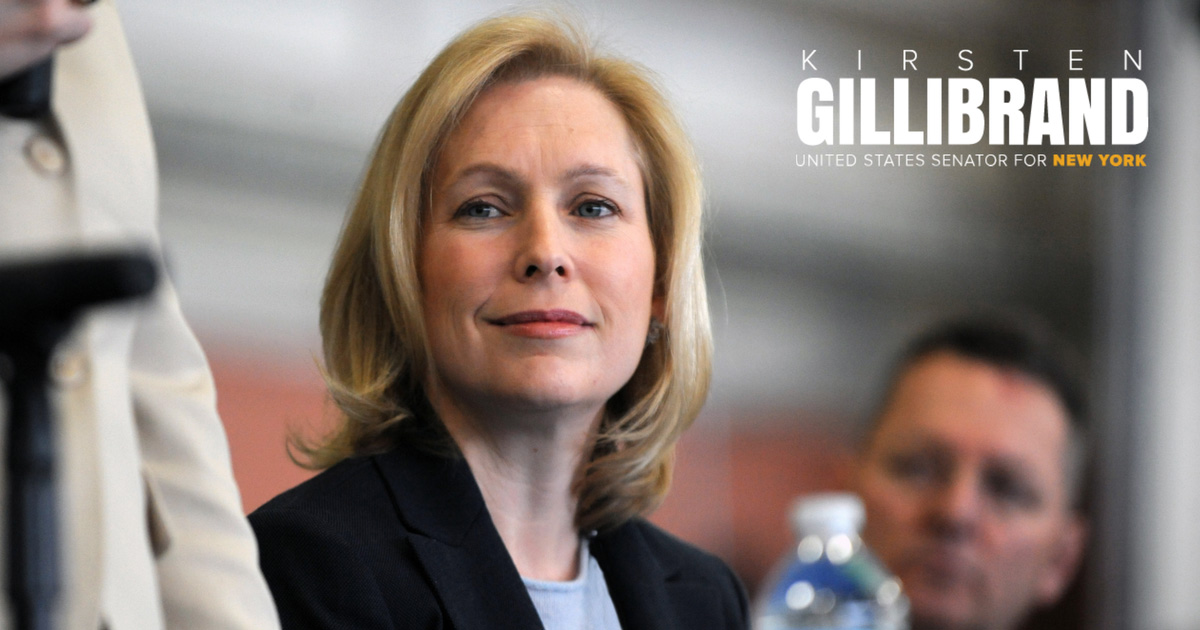Source: United States Senator for New York Kirsten Gillibrand
March 28, 2022
Today, U.S. Senator Kirsten Gillibrand announced her policy package to slash prescription drug prices, the “Gillibrand Prescription for Lower Drug Prices,” and sent a letter to congressional leadership urging them to take action on reducing drug prices. Joined by Congresswoman Grace Meng, Council Member Linda Lee, Asian American Federation Associate Director of Advocacy and Policy Ravi Reddi and President & CEO at Korean Community Services of Metropolitan New York (KCS) Myoungmi Kim, Gillibrand outlined the tenets of the bill package, which would help tackle the high cost of prescription drugs, and toured the Korean Community Services Flushing Older Adult Center.
The core pieces of the “Gillibrand Prescription for Lower Drug Prices” are:
- Reimagine financial assistance for Medicare. Legislation to create the Medicare Cost Assistance Program, a new, streamlined program to provide assistance with Medicare Part A and Part B premiums and cost-sharing for low-income individuals. This would reimagine financial assistance for Medicare Part A, Part B and Part D. The legislation would also expand and streamline administration of the Extra Help program to provide premium and cost-sharing assistance to eligible low-income individuals with Medicare Part D.
- Review brand-name price gouging. Legislation that would level the market for Americans purchasing prescription drugs by pegging the price in the United States to the median price in Canada, the United Kingdom, France, Germany and Japan.
- Empower Medicare to negotiate drug prices. A bill would direct the Secretary of Health and Human Services to negotiate lower prices for prescription drugs under Medicare Part D.
- Import lower-cost drugs from Canada. Legislation to allow patients, pharmacists and wholesalers to import safe, affordable medicine from Canada and other major countries.
- Expand subsidies to seniors living in U.S. territories. Legislation that would make Medicare beneficiaries in U.S. territories, such as Puerto Rico, eligible for the Medicare Part D Low Income Subsidy program. Under current law, low-income Medicare beneficiaries in Puerto Rico and other U.S. territories are ineligible for Medicare Part D subsidies. This program, known as “Extra Help,” provides federal subsidies to help low-income seniors with their monthly premiums and other out-of-pocket prescription drug costs.
“While our nation is recovering from the pandemic, drug prices remain unacceptably high, which puts a heavy financial burden on seniors and families in New York and across the country,” said Senator Gillibrand, member of the Aging Committee. “I am releasing the ‘Gillibrand Prescription for Lower Drug Prices’ plan to provide a framework for slashing drug prices. From fighting price gouging to importing affordable drugs from Canada to enabling Medicare to negotiate drug prices, this plan will help us bring down costs for countless Americans.”
“Drug prices are simply too high for families to afford. Americans should not be forced to choose between lifesaving medication and other daily essentials,” said Congresswoman Grace Meng. “We must continue to fight for the passage of legislation that will ease this burden for so many Americans. I am also calling on the Biden Administration to use the President’s executive powers to implement a number of quick fixes to begin taking this burden off millions of Americans shoulders.”
“It’s so wonderful to be back here at KCS,” said Council Member Lee, who prior to joining the City Council worked as President/CEO of the organization. “Our seniors, particularly in the AAPI community, struggle not only with the cost of Medicare and prescription drugs, but also accessing those programs to begin with. Senator Gillibrand’s bill will help reign in out-of-control price gouging by the pharmaceutical industry, make the US prescription drug market more competitive, and make it easier for low-income Medicare recipients to receive the assistance they need without having to navigate a complex bureaucracy full of red tape. I want to thank Senator Gillibrand for introducing this important legislation, and for the caseworkers here at KCS who do so much to help our seniors maintain the stable, dignified, and affordable lifestyle they so deserve.”
“We applaud the Senator’s efforts to address prescription drug price affordability, and it can’t come a moment too soon. On top of a pandemic, and relentless anti-Asian hate, seniors, many of whom live in poverty, continue to struggle to get their basic needs met,” said Ravi Reddi, Asian American Federation Associate Director of Advocacy and Policy. “While our City and State are looking towards a pandemic recovery, our community is still very much in crisis – and seniors, our most vulnerable community members, continue to be sidelined.”
Under current law, the secretary of HHS is prohibited from negotiating lower drug prices on behalf of Medicare Part D beneficiaries. In contrast, other government programs, like Medicaid and the Department of Veterans Affairs (VA), are allowed to negotiate. According to a recent report by the Government Accountability Office, Medicare paid twice as much for the same prescription drugs as the VA in 2017.
In 2020, five of the largest pharmaceutical companies in the U.S. made nearly $45 billion in profits. That same year, in the midst of a twin public health and economic crisis, drug makers raised the prices of more than 860 prescription drugs by 5%, on average. In 2020, the average annual cost of therapy for widely used specialty drugs was more than $84,000. This is nearly three times the median income for people on Medicare and more than four and half times the average Social Security retirement benefit.
